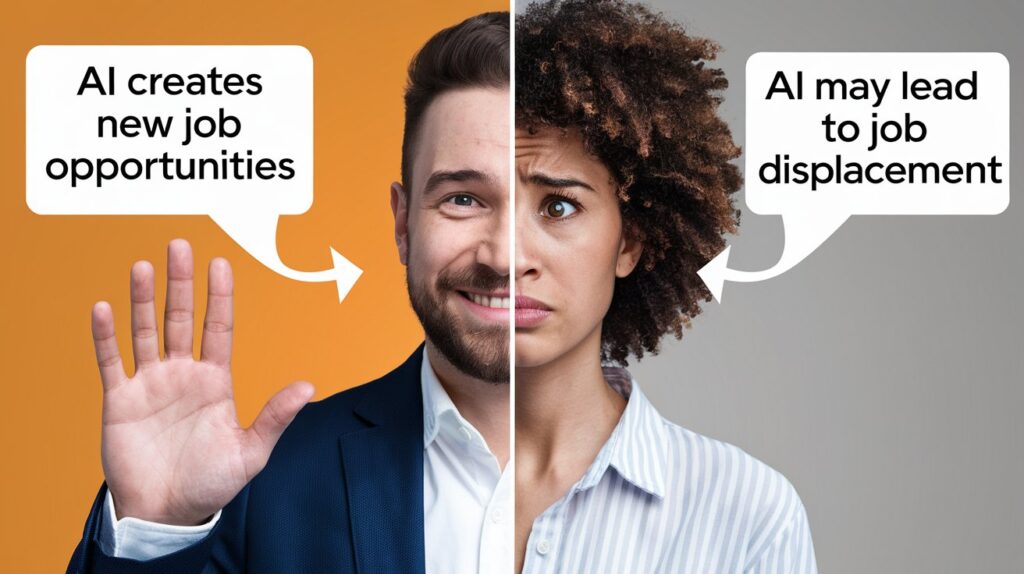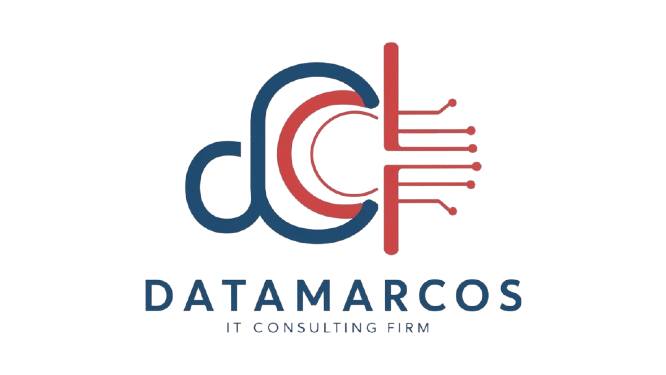

How AI is Impacting the Future of Work and Employment
The rapid development of AI is reshaping industries across the globe. From automating processes to enhancing decision-making capabilities, AI is revolutionizing how businesses operate. In the workplace, the integration of AI has sparked discussions about its impact on jobs and how human intelligence and machines will coexist in the future of work.
Introduction
Artificial Intelligence (AI) has become a major driver of change in the modern workforce. Its capabilities range from simple task automation to complex decision-making processes that challenge the role of human intelligence in several industries. With AI technologies like machine learning and natural language processing advancing at an unprecedented pace, businesses are rethinking their workforce strategies. This begs the question: What is the future of work in a world where AI plays a dominant role?
In this blog, we explore how AI is transforming jobs, creating new roles, and enhancing productivity. We will also discuss the evolving relationship between AI and human intelligence, and how businesses and workers can adapt to this changing landscape.

The Role of AI in the Modern Workplace
The influence of AI is being felt across all sectors of the economy. From customer service chatbots to sophisticated data analysis, AI tools are improving efficiency and reducing human error. The deployment of AI technology is leading to faster decision-making, reducing operational costs, and creating new ways to engage customers.
However, with these advancements, the role of human intelligence is being redefined. Tasks that previously required manual input are now being handled by AI systems. This shift has led to concerns about job displacement, but it has also opened up opportunities for humans to work alongside AI and leverage their uniquely creative and emotional capacities.
How AI is Transforming Jobs
1. Automation of Routine Tasks
Routine and repetitive tasks that once relied heavily on human intelligence are being increasingly automated. For instance, in manufacturing, robots powered by AI are handling assembly line operations with remarkable precision. Similarly, in finance, AI is automating data entry, bookkeeping, and even certain analytical tasks.
This automation raises concerns about job displacement, but it also offers a significant advantage: workers can now focus on higher-value tasks that require creativity, critical thinking, and emotional intelligence—skills that are challenging for AI to replicate. As machines handle the routine, human intelligence is freed to engage in more strategic roles.
2. AI Creating New Job Roles
While AI is automating some tasks, it’s also creating entirely new job categories. Data scientists, AI ethicists, and machine learning engineers are just a few of the positions that have emerged as a result of AI advancements. These roles require a deep understanding of AI systems and how they interact with human intelligence in various contexts.
For instance, AI developers work to design algorithms that can mimic certain aspects of human intelligence, like problem-solving and pattern recognition. AI trainers, on the other hand, help teach systems to perform tasks more accurately by providing data and feedback, reinforcing the collaboration between AI and humans.
Impact on Employment Across Industries
3. AI in Healthcare
In healthcare, AI is making a significant impact by augmenting the diagnostic capabilities of doctors. AI systems can analyze patient data to detect patterns that human intelligence might miss, leading to early diagnoses of diseases. This collaboration between AI and medical professionals is improving patient outcomes and reducing the workload on human staff, who can now focus on more complex, patient-centered tasks.
However, healthcare professionals must adapt to the presence of AI tools in their work. Doctors, nurses, and technicians are learning how to work alongside these technologies, combining the strengths of human intelligence—empathy, experience, and judgement—with the computational power of AI.

4. AI in Finance
In the financial sector, AI is revolutionizing how businesses handle data analysis and risk management. By processing vast amounts of data, AI systems can identify trends, forecast market behavior, and make recommendations that would take human analysts much longer to compute.
Yet, human intelligence still plays a critical role in interpreting AI outputs. While machines may generate predictions, it takes a human to consider the broader economic context, understand the nuances of investor behavior, and make informed decisions based on emotional intelligence.
5. AI in Retail and Customer Service
The retail industry is leveraging AI to personalize customer experiences. From virtual shopping assistants to recommendation engines, AI is helping retailers offer tailored suggestions based on customer behavior.
But it’s not just about automation—human intelligence is still necessary to provide the emotional connection and understanding that customers value. Employees are using AI-generated insights to deliver a more personalized, thoughtful service, proving that machines and humans can collaborate to enhance the overall customer experience.

The Collaboration Between AI and Human Intelligence
The rise of AI does not mean the decline of human intelligence. Rather, we are moving toward a future where AI and human intelligence work together. While AI excels at processing data and identifying patterns, it lacks the emotional intelligence, creativity, and problem-solving abilities inherent to humans.
To maximize the potential of AI, businesses must foster a partnership between machines and humans. By augmenting human intelligence with AI capabilities, companies can achieve greater productivity, innovation, and decision-making accuracy.
For example, in the creative industries, AI tools are being used to enhance design processes, but the final creative direction still relies on human judgment. Similarly, in research and development, AI can analyze massive datasets, but humans must interpret the findings and apply them to real-world challenges.
How Workers Can Adapt to the Rise of AI
As AI becomes more integrated into the workplace, workers must develop new skills to remain competitive. This means focusing on areas where human intelligence outperforms AI—namely, in emotional intelligence, creativity, and complex problem-solving.
Upskilling and Reskilling: Workers need to embrace continuous learning to adapt to the evolving demands of the workforce. This includes acquiring technical skills like programming, machine learning, and data analysis, as well as soft skills like collaboration and leadership that complement AI.
Embracing AI as a Tool: Rather than seeing AI as a threat, workers should view it as a tool that can help them perform their jobs better. By using AI to automate mundane tasks, workers can focus on higher-value contributions that rely on their unique strengths as humans.
Developing Hybrid Skills: The future of work will require a combination of technical and non-technical skills. Employees who can bridge the gap between AI and human intelligence will be highly sought after in the job market.

The Role of Education in Preparing for an AI-Driven Future
Educational institutions play a crucial role in preparing the workforce for an AI-driven future. Schools and universities must integrate AI and data literacy into their curricula, ensuring that students are equipped with the knowledge and skills needed to thrive in a world where AI is pervasive.
Moreover, programs that teach emotional intelligence, creativity, and problem-solving will become increasingly important. These areas, where human intelligence excels, will differentiate human workers from machines in the coming years.
Conclusion: AI and Human Intelligence in Harmony
The future of work will not be defined by AI alone, but by the collaboration between AI and human intelligence. While AI is transforming industries and creating new opportunities, it is up to us to harness its potential in a way that enhances human creativity, empathy, and innovation.
In this changing landscape, businesses and workers must adapt by embracing lifelong learning and recognizing the unique strengths that human intelligence brings to the table. By combining the computational power of AI with the emotional depth and critical thinking of humans, we can create a future of work that benefits everyone.
AI is automating repetitive tasks, enhancing decision-making, and creating new job roles. While some jobs are being automated, AI is also leading to the emergence of new positions that require a combination of AI expertise and human intelligence.
AI is unlikely to fully replace human jobs, but it will change the nature of work. Instead of replacing humans, AI will collaborate with human intelligence, allowing workers to focus on more strategic, creative, and emotionally driven tasks.
As AI technology advances, it is creating new job roles such as data scientists, AI developers, and AI ethicists. These jobs focus on managing and enhancing AI systems and require a strong understanding of how AI interacts with human intelligence.
Workers can adapt by upskilling in areas where AI cannot easily replicate human abilities, such as emotional intelligence, creativity, and complex problem-solving. Developing hybrid skills that combine technical know-how with soft skills will be crucial.
AI is impacting a wide range of industries, including healthcare, finance, retail, and manufacturing. In these sectors, AI is augmenting human intelligence by automating routine tasks, improving decision-making, and enhancing personalized services.

